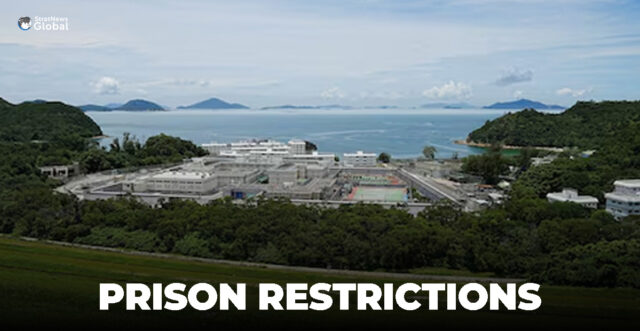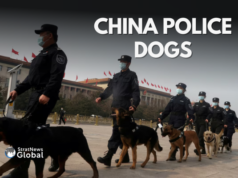Citing security grounds, Hong Kong authorities on Monday presented a proposal to lawmakers to tighten prison rules to restrict visits by lawyers, religious personnel and doctors even as critics said the move would further undermine prisoner rights.
In a government paper submitted to the legislature, the Security Bureau said there had been instances of prison visits being abused under the pretext of “humanitarian relief” in an attempt to influence prisoners and to “arouse their hatred” of the Chinese and Hong Kong governments.
Under the proposal, the Correctional Services Department (CSD) could apply for a magistrates’ warrant giving it the right to block or impose conditions on prisoner contact with specific lawyers and doctors.
Hong Kong’s mini-constitution, or Basic Law, enshrines legal professional privilege to safeguard confidential legal advice between lawyers and their clients, including in court and prison, and the right to choose a lawyer.
But Security Secretary Chris Tang told lawmakers that while prisoners don’t lose all their rights, “the rights they enjoy are not the same as those of people not in prison, and the time they can exercise these rights and freedoms must be limited by the need to maintain national security, discipline and order.”
China imposed a national security law on the former British colony in 2020, punishing offences like subversion with possible life imprisonment following mass pro-democracy protests in 2019.
The ongoing crackdown on dissent, including the use of powerful new national security laws to arrest pro-democracy campaigners and shutter civil society groups, has drawn criticism from countries including the U.S. and Britain.
Hong Kong and Chinese authorities say the laws have brought stability and order.
Jailed pro-democracy activist Owen Chow and his lawyer were convicted last year for violating prison rules after his lawyer took a complaint form out of the prison without authorisation.
A veteran lawyer who did not wish to reveal his identity due to the sensitivity of the matter told Reuters that this proposal further “extends the power” of authorities over those accused of national security offences.
Derek Chu, the founder of prison rights advocacy group “Waiting Bird” told Reuters that it would further silence individuals such as barrister and activist Chow Hang Tung, who has remained outspoken even behind bars.
“It cuts off the support to the political prisoners inside, further isolating them and undermining the will of those who are willing to fight for justice and human rights,” Chu said.
Chow and her mother Medina were among eight people arrested for sedition under the Article 23 national security laws enacted last year, for allegedly using a Facebook page to “advocate hatred” against the Chinese and Hong Kong government.
Under Article 23, the police chief can apply for a magistrate’s warrant to deny suspects arrested for alleged national security crimes access to a lawyer.
The current proposal can be gazetted directly into law by the government, and then vetted by the legislature.
(With inputs from Reuters)





